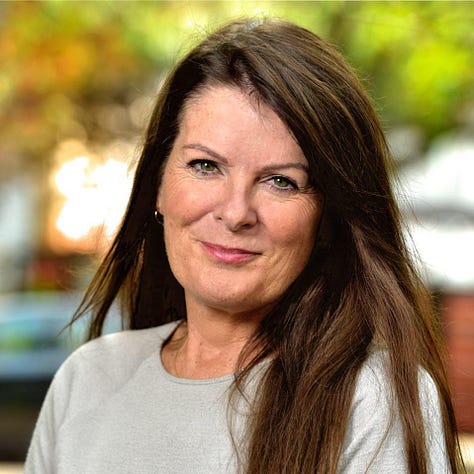Your little one's educators need a raise
This Labor Day, go tell your politicians to make it happen. It's easy. Here’s how.
Friend, I have a problem. Maybe you can relate. I joined every child care seeker’s forum I could find in hopes of finding the perfect spot for my youngest. And now, every time I open Facebook, I’m hit with desperate pleas from families seeking child care placements. Of course, I read them. So of course the algorithm thinks I’m into this kind of thing and sends me more, and more and more…
Maybe that’s why, the moment I read that Vancouver City Hall rejected a licensed in-home child care centre’s proposed expansion, I wanted to scream, cry and break something all at the same time. Do these people have ANY IDEA the crisis so many local families — mothers especially — are experiencing right now?
Then, when the Vancouver Sun reported the very next day that a handful of city councillors have vowed to do better, I was completely surprised by my immediate reaction: meh, a shoulder shrug.
Yes, making it easier for individuals to open child care spaces in their family homes can absolutely help some families asap. But that’s not the backbone of a universal child care system, right? Whenever my 4-year-old passes by a dedicated child care facility, like VSOCC’s Dorothy Lam Children's Centre, she points and says, “Mama, I want to go there.”
With its private outdoor playgrounds on two floors, nestled among a community centre, an elementary school and a public park, of course she does! That’s the kind of community-centered child care facility that’ll endure 30+ years from now, when she’s considering parenthood herself.
So, how far is B.C. from reaching its goal of providing 40,000 new $10 per day child care spaces by 2028? What are our local and provincial leaders doing right now to get us there before the end of this decade? How can parents help keep our local and provincial leaders accountable?
Drowning in doubt and uncertainty, I decided to ask B.C.’s most vocal child care advocate — Sharon Gregson of The Coalition of Child Care Advocates of BC — for some clarity. And just our luck, she graciously agreed to share her knowledge.
Who is Sharon Gregson?



Sharon Gregson is the provincial spokesperson for The Coalition of Child Care Advocates of BC (aka The Coalition).
The Coalition alongside the Early Childhood Educators of BC (ECEBC) researched, drafted and popularized the original $10aDay Plan that set the stage for B.C. — and every other province — to commit to implementing universal child care and early education systems that cost families just $10 per day.
These organizations have been advocating for high-quality, publicly funded child care for the past 40 to 50 years. Gregson herself has been supporting The Coalition since the mid 1980s. So, when she says that she and her colleagues know the three key actions the province needs to take to make universal child care a reality asap, I’m inclined to believe her.
In less than 60 minutes, I learned so much about the past, present and ever-hopeful future of universal child care in B.C. But, ironically, I’ve had limited child care support on my side until preschool starts back up. So we have to take it slow.
Today, which just happens to be Labor Day, let’s focus on the #1 RECOMMENDATION that Gregson and her colleagues have for our provincial leaders — and how you can effortlessly support their call to action.
Pay early childhood educators $30 to $40 per hour, ASAP.

Everyone already agrees. Without qualified early childhood educators, there can be no high-quality universal early childhood education system. But there seems to be an enduring discrepancy on how the province can better support and grow its heavily cis-gender female, heavily racialized and foreign-born early childhood educator (ECE) workforce.
So far, the province has provided a $4/hour wage enhancement to more than 15,000 certified early childhood educators working in licensed facilities. That wage increase has brought the median wage for B.C. ECEs up to $26/hour, the B.C. Minister for the State of Child Care Grace Lore recently told Global News. That’s up from $18/hour, according to 2016-17 data. The CBC also reports that the ministry has spent $540 million to fund those wage enhancements, as well as expanded university training seats, bursaries for ECE students, and professional development and peer mentoring supports for employed ECEs.
And yet, despite those investments, child care advocates like Gregson warn that wages are still falling behind, and ECEs are still fleeing the industry, leaving existing child care facilities underutilized.
Why? For one, B.C. hasn’t mandated competitive minimum wages for the early childhood education sector. In July, The Coalition and ECEBC released a report showing that the “effective ECE minimum wage” in BC is actually $20.75 per hour, when accounting for the fact that the starting rate for ECEs can still be the province’s legal minimum wage ($16.75/hour) plus the $4/hour wage enhancement. That’s $11 below the “effective ECE minimum wage” in the Yukon, $6 below Prince Edward Island and $3 below Alberta.
The average wage for our ECEs currently sits at $24.32, The Coalition also estimates. That’s just 24 cents above the estimated living wage ($24.08) for families in Metro Vancouver — even as the average price for a one-bedroom apartment in Vancouver has surpassed $3,000/month.
Plus, B.C.’s $4/hour wage enhancement does not apply to all child care workers. Those working in unlicensed settings, and those who don’t hold post-secondary certificates or diplomas in early childhood education, do not receive this top-up.
“Particularly for immigrants and refugees coming here, access to post-secondary education to achieve their credential is daunting,” Gregson explained. “There are bursaries available for people to obtain their first [one-year] ECE credential, but the bursary is paid out after you take the course. For low-income women, that’s just simply not feasible.”
Instead, Gregson said many immigrant and refugee women decide to complete a few hours of training to obtain a “responsible adult” designation, or invest in one or two courses to receive an “ECE assistant” designation.
“Neither of those positions quality for the $4/hour wage enhancement from the government, so it keeps their wages even lower,” she said.
So, what’s the solution?
“We are pushing for a province-wide publicly funded wage grid for early childhood educators of at least $30-$40 per hour,” Gregson said. “Because we cannot even sustain the programs we have — never mind expand the 40,000 new spaces that are committed.”
A wage grid is basically a scale that mandates how salaries must step up based on the nature of the position, the employee’s qualifications, and other factors, like their years of experience in the industry. B.C. already maintains wage grids for many public service positions.
Our provincial leaders did commit to implementing a wage grid as part of the Canada-Wide Early Leaning and Child Care Agreement it signed with the federal government in 2021.
“Work to deliver on this commitment is underway, including establishing a timeline for (wage grid) implementation,” Minister Lore confirmed to Global News in July.
But keep in mind: B.C. began implementing this system five years ago and was the first province to sign an agreement with the federal government in 2021. However, six provinces — Manitoba, Nova Scotia, New Brunswick, Newfoundland and Labrador, Quebec and Prince Edward Island — have already implemented wage grids for their ECEs, Global News noted.
Plus, just this past week, Prince Edward Island took an unprecedented step further. There, Prime Minister Justin Trudeau and P.E.I. Premier Dennis King announced Canada’s first-ever pension plan (with matching government funds), for ECEs.
OK, I want a raise for my early childhood educators, too. But what can I do?
Tell you provincial representatives! It’s easy.
Add your name, email and postal code to the form.
Scan through the text, which backs The Coalition’s position on prioritizing implementation of the wage grid
Hit send
Based on your postal code, emails will automatically go to B.C.’s premier, finance minister, minister of education and child care, and your own MLA.
“These politicians have literally been receiving thousands of emails from us,” Gregson said. “We track the constituencies that the emails come from, and every MLA from every constituency has been receiving emails that this is a priority.”
The timing here matters too: B.C. officials are currently negotiating the provincial budget priorities for 2024. Child care advocates like Gregson are concerned that the province is not committing enough funds to the right priorities to fully implement the child care system on time. (More on that to come!)
To anyone doubting the effectiveness of sending emails, Gregson was clear:
“This is how the $10aDay plan was successful in the first place — by creating the public support and a safe space for politicians to make good decisions. Politicians only make good decisions when they know there’s demand behind it.
So, let’s help our representatives make good decisions on child care. Go press send your emails and tell a friend to do the same.

Alright, that’s your Playgound Talk for this week! Please consider spreading the word by sharing the link in group chats, forwarding this email to your local mom and dad friends, or even discussing this issue IRL at your local playground.




